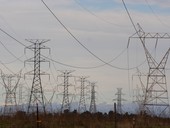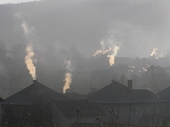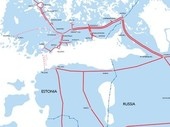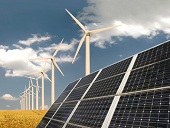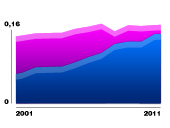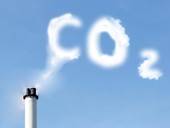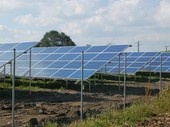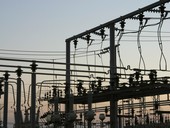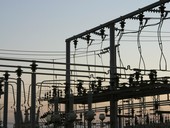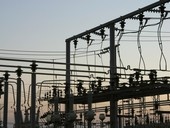So far it was assumed that the PV systems with an east-west orientation need separate inverter for each orientation or at least inverter with two MPP trackers to avoid mismatch losses. Analysis of such system shows that with one MPP tracker losses are relatively small.
Archiv článků od 26.11.2012 do 18.3.2013
Since the combustion of solid fuels in heating boilers is attended by emissions of pollutants, in individual EU countries are gradually adopted different tightening requirements (emission and efficiency), which the appliance must meet. Requirements are targeted both the producers or importers of the combustion devices and theirs' operators. The aim of this article is to provide an overview of current and oncoming requirements and also show their comparison.
Scramble for Africa is a concept which is name for the period of colonial conquest of Africa between 1881 and 1914. The former European powers occupied continent of Africa by armies until the final allotment of the entire continent. Similar is the current battle of the Baltic countries for supremacy in building their own LNG terminal.
In the past there has been several large blackouts in the world. Risk of such blackout reportedly increases with increasing of share of renewable energy sources in energy mix. In fact neither of previous blackouts were caused by renewables. Main primary causes are age of transmission system components or operator error. Frightening with several days outage caused by renewable sources is exaggerated.
Concept Data Support Department of the Ministry of Industry and Trade has prepared this statistical report as a comprehensive national statistics on renewable energy sources. The final part of the report provides statistical data of the categories Energy use of waste and alternative fuels, Hydropower, Wind Power, Photovoltaics, Solar thermal systems, Heat pumps and Geothermal energy.
Sewage water contains organic compounds, thermal and kinetic energy, the amount is about 9 times higher than is needed for cleaning. The biggest source of heat energy are beyond the wastewater treatment plants, hotels, schools, restaurants, hostels, administrative buildings and other public facilities. Also, a wellness center, swimming pools, spas, and hospitals.
Concept Data Support Department of the Ministry of Industry and Trade has prepared this statistical report as a comprehensive national statistics on renewable energy sources. First part of the report focuses on the position of RES in the energy balance of the Czech Republic and describes in detail the development of the category of biogas and liquid biofuels.
Comparison of price developments in eight EU countries shows very interesting facts. Eg. for common Czech household with consumption 2.5-5 MWh / year electricity price increased in 2011 to 229% of the price in 2001. While the same household in Germany to only 115%. While the current price is very close (CR 3.07, Germany 3.50 CZK / kWh).
The unfavorable trend in the development of carbon monoxide poisoning in the operation of gas appliances category B hasn’t, despite increasing technical performance of these appliances, downward trend. What is the responsibility of manufacturers, operators, assembly and service companies, engineering inspectors and citizens - users in the operation of gas appliances in case of poisoning?
Ministry of Industry and Trade prepares an elongation of the so-called solar tax. Based on actual law, the tax is charged until end of 2013 on photovoltaic power plants commissioned during photovoltaic boom in 2009 and 2010.
The boom was caused by the previous government because of its slow response to the rapid decline in investment costs of photovoltaics. In contrast to Germany, the feed-in-tarifs (FiT) remained too high (decreased only 5 % yearly) until the end of 2010, although the Government announced its intention to reduce the FiT from 1 January 2010 already on 24 August 2009.
Actually the tax is 26 % of FiT, in fact it is retroactive reduction of FiT.
According to sources from the Ministry for following years the tax will be differentiated by individual halves years. Surprisingly the higher tax will be charged on plants commissioned in first half of 2010, in the second half of the year the tax will be lower. In the second half of 2010 the majority of photovoltaic power plants was commissioned (1295 MWp out of 1953 MWp installed since 2006). Their realization was generally started at a time when it was known government's intention to reduce the FiT. In contrast, the realization of the plants commissioned in first half of 2009 (only about 20 MWp) was generally started at a time when FiT was consistent with investment cost and no information about FiT reduction was published.
The article presents an extensive and detailed analytical study that explores in detail the possibility of directing the development of the European energy industry in order to achieve a significant reduction in greenhouse gas emissions and a significant decarbonisation of the energy sector. Roadmap is not to be predictions or plan for further development, its goals are more modest, to lend a hand in finding their own paths to member countries to a sustainable, economically viable and environmentally acceptable energy economy.
The unfavorable trend in the development of carbon monoxide poisoning in the operation of gas appliances category B hasn’t, despite increasing technical performance of these appliances, downward trend. What is the responsibility of manufacturers, operators, assembly and service companies, engineering inspectors and citizens - users in the operation of gas appliances in case of poisoning?
Directive 2010/31/EU of the European Parliament and of the Council on the energy performance of buildings requires that new buildings since 2018 (public buildings) and 2020 (all buildings) respectively were buildings with nearly net zero energy buildings. The requirement relates to the all technical systems of the buildings. The paper presents possible solutions in ventilation and air conditioning field in these buildings and presents considerations about possible developments with regard to the requirement of reducing energy consumption.
The article presents an extensive and detailed analytical study that explores in detail the possibility of directing the development of the European energy industry in order to achieve a significant reduction in greenhouse gas emissions and a significant decarbonisation of the energy sector. Roadmap is not to be predictions or plan for further development, its goals are more modest, to lend a hand in finding their own paths to member countries to a sustainable, economically viable and environmentally acceptable energy economy.
The article presents an extensive and detailed analytical study that explores in detail the possibility of directing the development of the European energy industry in order to achieve a significant reduction in greenhouse gas emissions and a significant decarbonisation of the energy sector. Roadmap is not to be predictions or plan for further development, its goals are more modest, to lend a hand in finding their own paths to member countries to a sustainable, economically viable and environmentally acceptable energy economy.
zpět na aktuální články

